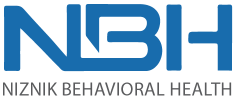5 Ways to Avoid a Relapse During Quarantine
When the stay-at-home orders to stop the spread of Coronavirus were announced, everyone had different reactions. Some were enthralled at the prospect of finally getting to stay home and rest. On the other hand, others were worried about how it would disrupt their daily routine. A category of people that fit the latter description are those recovering from addiction.
There have been worries that stay-at-home orders could have a negative impact on people struggling with and recovering from substance use disorders. These are valid causes for concern as research has found that during these turbulent times, people with a substance use disorder are more at risk of homelessness and incarceration than those in the general population. Besides this, they could be at risk of being infected with COVID-19.
Another thing to keep in mind is how staying at home could increase the risk of a relapse. If you’re looking for tips on how to avoid a relapse and stay grounded during COVID-19, here are 5 ideas.
Prioritize Self-Care
Over the past couple of years, so many people have been making noise about self-care that it’s become a buzzword. But what is self-care beyond affirmations, motivational clips, and bubble baths?
Medical self-care is about making informed decisions regarding how to treat and prevent health problems. In simple terms, it encompasses doing things that make you feel good and improve your overall well-being. That spans from getting enough rest to eating food that nourishes your body.
While you might be tempted to throw your diet aside and become a couch potato, that isn’t the best self-care. Here are a few examples of effective self-care according to the New Hampshire State Government:
- Healthy food and drink choices
- Daily physical activity
- Stress management
- Quality sleep
- Weight management
- Preventative care
Keep a Routine
Routines are a good way to give your life order and structure. When your routine is disrupted, it can lead to uncertainty and anxiety which for some, can trigger a relapse. Seeing as studies show that predictable routines can be calming and help reduce anxiety––it’s something you should keep in place.
For instance, if you usually have therapy sessions every week, continue having them virtually. Other aspects of your routine that you may want to keep up with are working out and cleaning your space. Remember, your environment can influence drug use and addiction, so create a positive environment at home.
Take Social Media Breaks
One of the consequences of social distancing and stay-at-home orders is that you can’t physically engage with friends and family. This means you’re limited to talking on the phone, video calls, and social media to engage and connect. While these are great alternatives, spending too much time on social platforms may not be good for your mental health.
A recent study found that Instagram is the “worst” social media platform for mental health. Reason being, it elucidates feelings of inadequacy and anxiety resulting from constant comparison.
If you aren’t comparing your success to that of those on your timeline, you may find yourself turning quarantine into a productivity contest. This can cause negative emotions which, if not managed well can trigger a relapse.
Connect With People
Connecting with people during this time of isolation is so important––especially if you live alone. It could help reduce feelings of stress, anxiety, and loneliness which can trigger low moods.
To support this idea, a study on predictors of relapse after inpatient opioid detoxification during 1-year follow-up found factors like regularly meeting other drug users, being offered drugs, and persistent low moods influenced relapse.
You can avoid this by reaching out to your support system and doing lunch dates or movie dates via Skype. Remember, social distancing doesn’t mean you have to do it alone. Surrounding yourself with positive people is a critical aspect of staying sober, so go overboard on the video calls and instant messaging when the going gets tough.
Maintain Your Health
Keeping physically healthy is also key if you want to maintain sobriety during this pandemic. For example, eat foods that boost your mood such as green veggies as they contain folate which is a B vitamin that helps your body produce serotonin. Researchers found that people with depression consume less folate and don’t have a lot of it in their blood relative to those without depression.
In addition to eating right, if you’re supposed to take any medications, make sure you commit to doing so. Staying active is another great idea as it can boost your moods and help increase the dopamine levels in your brain.
In times of difficulty, focusing on your well-being can be tough. For this reason, be easy on yourself during this period and if you do relapse, remember it’s a normal part of the recovery process. There is always a community of people ready to help you get back on track. Contact us to learn more about the telehealth services we’re offering for the duration of COVID-19.

